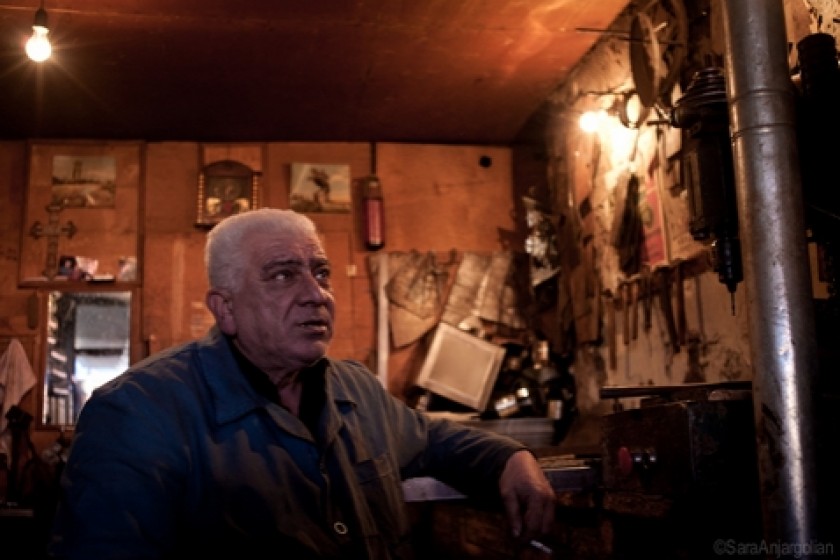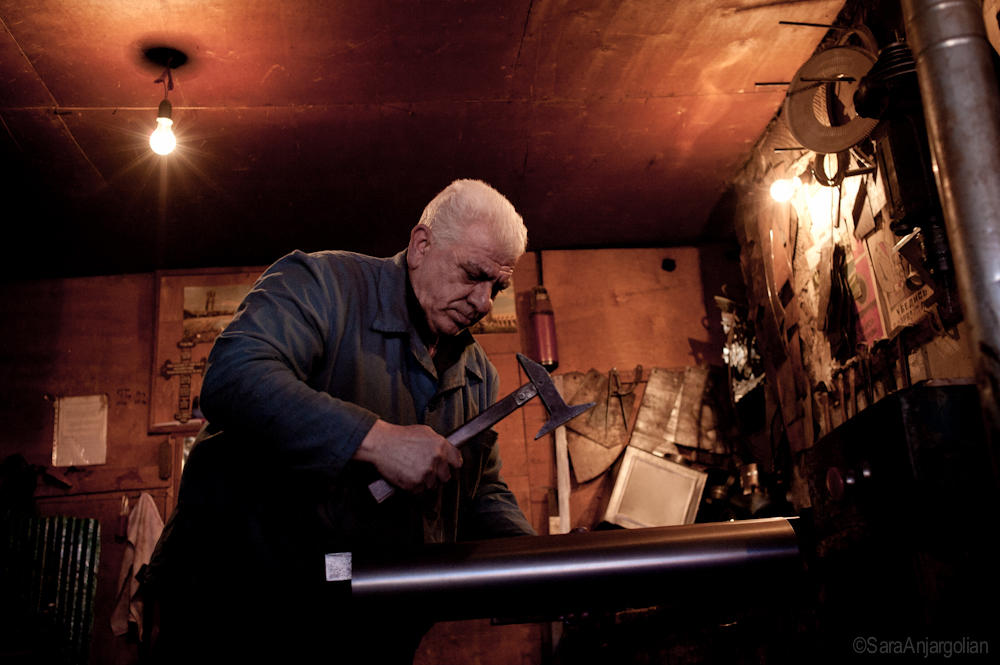
Grigor Melkonyan: A 3rd Generation Gyumri Tinsmith Struggles to Keep the Family Business Going
As I approached, no sounds emanated from the workshop of Gyumri tinsmith Grigor.
The craftsman wasn’t in the mood to either talk or work. He appeared irritated, saying that he felt a bit out of sorts and that his relatives were getting on his nerves.
He didn’t go into details.
When I asked about his trade, Grigor only hemmed and hawed. “Who’s left to work for? They’re all going.
Grigor Melkonian learnt the craft from his father, who learnt it from his father. Now 60, Grigor has been a tinsmith for 40 years.
The craftsman is helped by his sons when the need arises. Even though they are college graduates, they haven’t found jobs in their fields.
“My oldest son has such a touch. He’s a better craftsman than me,” Grigor boasts, who says that the secret of being a quality tinsmith is getting the sizes and forms into proper balance.
Gyumri was once full of master craftsman like Grigor. Sadly, their numbers have substantially thinned over the years.
“There’s no advancement. We’re slowly falling behind. They’re bringing all imported goods to heat their homes. People say those Italian gas burners are cleaner and such. But the price of gas will one day become so exorbitant that they’ll be forced to come and buy these wood stoves. The heat from wood is different,” Grigor says.
He also points to how the big businessmen are pushing out craftsmen like him with imports of stove pipes and other tin items. But he argues that the stuff is poor quality and that people only buy them because they mistakenly believe that imports are better than domestically produced items.
“Those imports don’t last long. So the people regret buying them and come back to me for handmade items,” Grigor adds.
The craftsman has built a burner for his home that works with gas and wood. When gas supplies are cut, the family uses wood. They also use the stove to bake bread and pastries.
Moving around the small workshop, we’d constantly bump into a large suitcase.
After slowly opening up, Grigor confessed that he was angry with his nephew; his sister’s son, who had left for Russia for seasonal work. But the authorities had deported him. The suitcase in the workshop was his.

Many are leaving Gyumri, and the exodus has Grigor worried. He says that the neighboring houses on his street are all empty and that craftsmen once lived there. One was a furniture maker, one was a jeweler.
Grigor says that furniture imported from Iran forced his neighbor to close up shop and leave for Russia.
“When a jeweler leaves, who will stay on?” Grigor asks, and then answers his own question. “Even at the worst of times, a jeweler would make 10-15,000 AMD a day. But the guy just packed up and left.”
Grigor believes that no one appreciates his trade nowadays. His son also travels to Russia for seasonal work. The craftsman tries to convince his son to stay and take over the business, but to no avail.
“He says, I’ll go and make a few bucks a day. I’ll send it back so the kids can live. But the kids don’t see their father for ten months out of the year. Is that right, for a child to grow up without a father? They’ll grow up to be good for nothings.”
Grigor then offered us some chocolate and bid us farewell. We looked at the wrapping. The chocolate was made in Russia.
The tinsmith's deported nephew had brought it back with him.
Photos by Sara Anjargolian
 Videos
Videos Photos
Photos




Write a comment